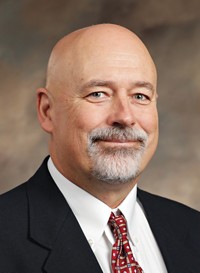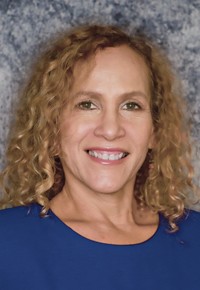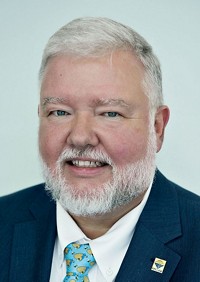Advertisement
Grab your lab coat. Let's get started
Welcome!
Welcome!
Create an account below to get 6 C&EN articles per month, receive newsletters and more - all free.
It seems this is your first time logging in online. Please enter the following information to continue.
As an ACS member you automatically get access to this site. All we need is few more details to create your reading experience.
Not you? Sign in with a different account.
Not you? Sign in with a different account.
ERROR 1
ERROR 1
ERROR 2
ERROR 2
ERROR 2
ERROR 2
ERROR 2
Password and Confirm password must match.
If you have an ACS member number, please enter it here so we can link this account to your membership. (optional)
ERROR 2
ACS values your privacy. By submitting your information, you are gaining access to C&EN and subscribing to our weekly newsletter. We use the information you provide to make your reading experience better, and we will never sell your data to third party members.
Elections
For director-at-large: Harmon B. Abrahamson
September 8, 2019
| A version of this story appeared in
Volume 97, Issue 35

Red River Valley Section. (Retired) Professor of Chemistry, University of North Dakota Grand Forks, North Dakota.
Academic record: University of Minnesota, B Chem, 1974; Massachusetts Institute of Technology, PhD, 1978.
Honors: ACS Fellow, 2013; NSF Pre-doctoral Fellow, 1975–78; National Merit Scholar, University of Minnesota, 1970–74; Sigma Xi; Tau Beta Pi; Phi Lambda Upsilon.
Professional positions (for past 10 years): University of North Dakota, professor emeritus, 2019–, interim associate vice president for research and economic development, Research Development and Compliance, 2015, associate dean, Arts and Sciences, 2011–14, department chair, 1996–2003, 2016–19, professor, 1995–2019.
Service in ACS national offices: Council Policy Committee (voting), 2014–19, (nonvoting), 2011–13; Committee on Constitution and Bylaws, 2008–13, chair, 2011–13, chair-elect, 2010, secretary, 2010, committee associate, 2006–7; Committee on Minority Affairs, 2003–10, committee associate, 2001–2.
Service in ACS offices: Red River Valley Section: councilor, 2000–21; alternate councilor, 1998–99; chair, 1989; chair-elect and program chair, 1988; recording secretary, 1987. Great Lakes Regional Meeting:secretary, 2001–9, program chair, 2000.
Member: Member of ACS since 1975; Tau Beta Pi; Sigma Xi, University of North Dakota chapter, 1994–95; ACS division:Inorganic Chemistry.
Related activities: President, Sigma Xi University of North Dakota chapter, 1994–95; Ohio State University, visiting associate professor, 1991–92; University of Oklahoma, assistant professor, 1978–84; 39 publications; 51 presentations.
Abrahamson’s statement
I am honored to be a candidate for director-at-large of the American Chemical Society. As a 45-year member of ACS, I have found value in my membership in an evolving set of ways. I began as a consumer, finding ACS journals to be an important source of information. Involvement in my local section not only helped me to build my network; it also gave me opportunities to hone my leadership skills. Service as councilor, and as a member and chair of a national committee (Constitution and Bylaws) further extended those lessons, giving me a lot of insight into how our society functions.
The existence of a functional strategic plan serves as a useful way to focus our efforts. Of the core values expressed in that plan (passion for chemistry and the global chemistry enterprise; focus on members; professionalism, safety, and ethics; diversity, inclusion, and respect), I find greatest resonance with the last two. This stems largely from what I have encountered in my career in higher education, and through my previous service on the ACS Committee for Minority Affairs.
The strategic plan lays out four focus areas, or goals. I comment on them below in the order in which I, while serving three years as director-at-large, could have the most impact.
Provide information solutions. Over the years, ACS has established itself as “the most authoritative, comprehensive, and indispensable provider of chemistry-related information” in the world. As an author, reviewer, and reader of ACS journals, I am proud that they set the standard in the field. In the ever-changing world of information services, we need to continue to constantly improve our products and approaches in order to remain relevant. Chemical Abstracts Service and ACS Publications are essential to the success of the society, and the board exercises critical oversight of their operations.
Communicate chemistry’s value. One important role of members of the board is to make clear the value of chemistry (and chemists), especially to critical interest groups. I am an ACS chemistry ambassador, working with groups in our local section to engage the public with chemistry outreach events on campus, in the schools, and in the community. I have been part of the ACS Legislative Action Network (now Act4Chemistry) for many years and regularly use that channel to keep my members of Congress apprised of issues of concern to chemists. (You should participate, too; it’s easy!) I want to leverage these experiences into expressing the value of chemical industry, education, and research in solving the grand challenges we face going forward.
Support excellence in education. The roots of my 41-year career in higher education go back to my experiences doing free informal tutoring in the dorms as an undergraduate. I found that I enjoyed helping people learn. One of the important roles that ACS fills is to help ensure that undergraduate chemistry education programs are robust and can adapt to the continually changing landscape of expectations from employers and graduate programs. In addition, I see an increasing role for ACS in guiding the evolution of graduate education. While chemistry is indeed the “central science,” we need to aid our graduate students as they train to work in an increasingly multidisciplinary world.
Empower members and member communities. My first ACS service at the national level was on the Community for Minority Affairs, because I was directing minority student training and fellowship programs. I have also been a mentor to an ACS Scholar. I remain convinced that diversity of all kinds is important in the chemical enterprise. Problem-solving is enhanced when we bring a variety of perspectives to bear. We need to continue to work to increase the diversity in our chemical education programs so that it can be translated into greater diversity in the workforce.
The strengths I would bring to the position include collaborative ability, integrity, communication skills, and a strong commitment to diversity. I don’t come before you with a predetermined road map of actions. I view the directors-at-large as strong connectors between the multiple millions of dollars’ business side of ACS, and the over 150,000-member membership organization that is represented by you, us, the councilors, who oversee the committees and other volunteer efforts. We have an excellent strategic plan in place that will help focus our efforts in both directions.
I don’t have all the answers, but I am a good listener. I look forward to working with all of you to plan detailed objectives to meet these goals.
Candidates will not be notified of comments left on this webpage. To contact this candidate directly, email harmon.abrahamson@und.edu.





Join the conversation
Contact the reporter
Submit a Letter to the Editor for publication
Engage with us on Twitter